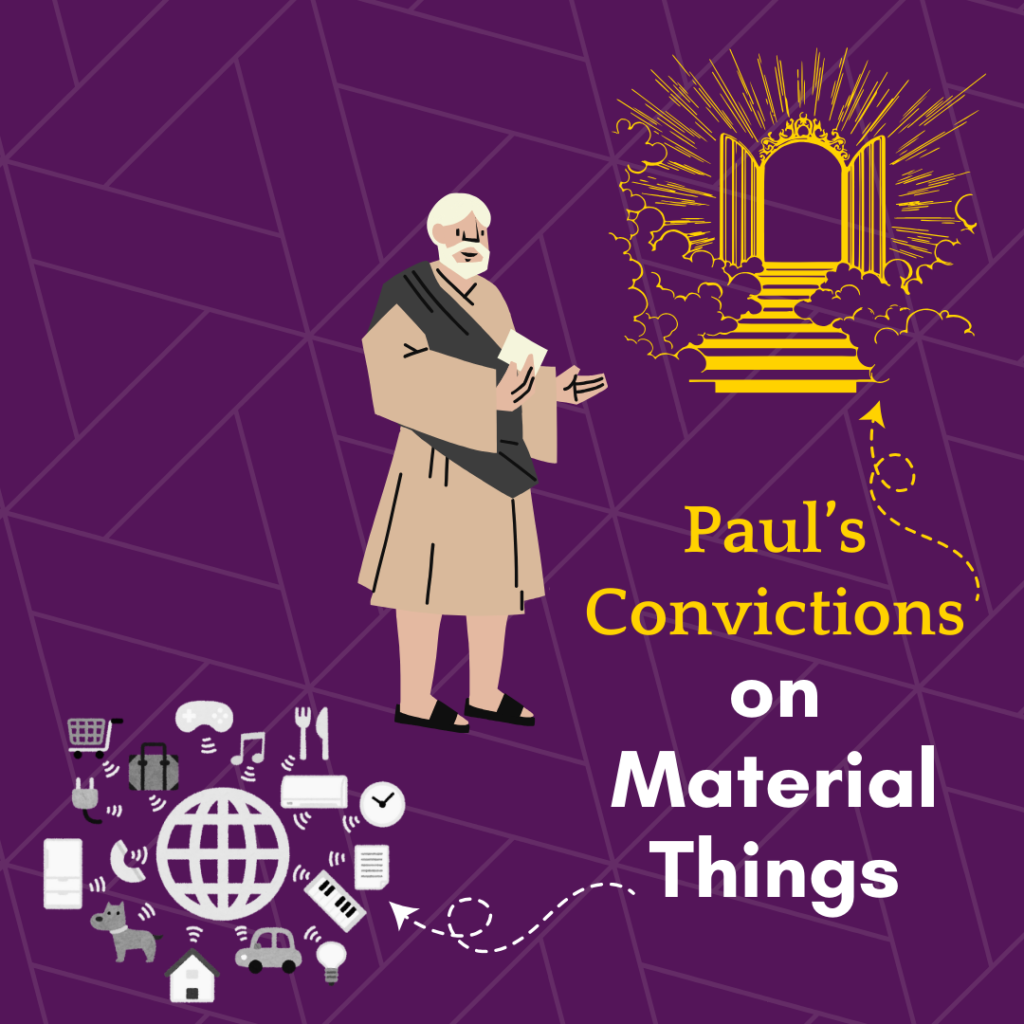Paul’s Convictions on Material Things
C.T. Studd is a sign to all succeeding generations that it is worthwhile to lose all this world can offer and stake everything on the world to come. He had demonstrated what it means to follow Christ without counting the cost or without looking back” wrote Alfred Buxton about the attitude of Studd on money.
In January 13, 1887, Studd inherited 29,000 pounds which is equivalent to 25 crores in today’s value. He ·gave all his fortune for various ministries. He left a small portion for his wife. His wife also gave her portion to the Lord after marriage. They started their family life like paupers. But the Lord met all their needs and used them to reach out to millions of people through their efforts and though the organizations that they founded.
Today many · Christians do the opposite to what Studd did in his life on material things. They want to accumulate money for themselves and for their children. Many preachers also run after money, which is the twentieth century idolatry. But the Bible teaches that ‘one’s life does not ‘consist in abundance of things he possesses’ and calls believers to ‘layup treasures in heaven.’
Paul believed these teachings of the Bible on material things one hundred percent. His conviction on material things is that we brought nothing into this world and would not carry out anything from this world: “For we brought nothing into this world, and it is certain we can carry nothing out And having food and clothing, with these we shall be content” (1Tim. 6:7-8). It is a pity that many believers and preachers after live in this world as if they will be taking with them all their property into the next world. Let us see why Paul gave least importance to the material things of this world.
Paul believed that material things cannot be carried from this World:
“For we brought nothing into the world, and it is clear that we can carry nothing out. But having food and clothing, we will be content.” (1Ti 6:7,8).
Paul did not fix eyes on the things of this world:
“So we fix our eyes not on what is seen, but on what is unseen, since what is seen is temporary, but what is unseen is eternal.” (2 Cor. 4: 18 NIV)·
Paul was convinced that riches spoil the spiritual life:
“For the love of money is the root of all evil: which while some coveted after, they have erred from the faith, and pierced themselves through with many sorrows.” (1Tim. 6: 10).
Paul believed that riches are uncertain:
“Command those who are rich in this present age not to be haughty, nor to put their hope on the uncertainty of riches, but in the living God, who provides all things richly for us to enjoy” (1Tim. 6: 17).
Paul taught that believers should store up treasures in heaven:
“That they do good, that they be rich in good works, ready to share, to be generous,
1Ti 6:19 laying up in store for themselves a good foundation against the time to come, that they may lay hold on eternal life.”(1 Tim 6: 18-19).
Paul considered that riches lead to destruction and perdition:
“But they who will be rich fall into temptation and a snare, and into many foolish and hurtful lusts which plunge men into destruction and perdition.” (1Tim. 6:9).
Paul taught that we should flee from worldly things:
“But you, O man of God, flee these things and follow after righteousness, godliness, faith, love, patience, and meekness.”(1Tim.6: 11).
Dr. Moon who discovered the Braille system was not blind when he was born. He lost his eyesight when he was a young man. He did not question God for this misfortune. He also never murmured for this setback. He thanked God for his blindness. When he found that there was no way of restoration of his lost eyesight, he prayed to God to use his talents for the glory of God.
The Lord heard the prayers of Dr. Moon and enabled him to discover the Braille system which helped millions of blind people to read the Bible, understand the gospel and put their trust in the Lord. Let us learn from Dr. Moon and Paul that worldly things are not very important. May the Lord help us not to follow the teachings of prosperity preachers who preach prosperity by quoting the Bible portions out of their context.
(Dr. C. Barnabas, taken from True Discipleship, July-Aug 2006)

